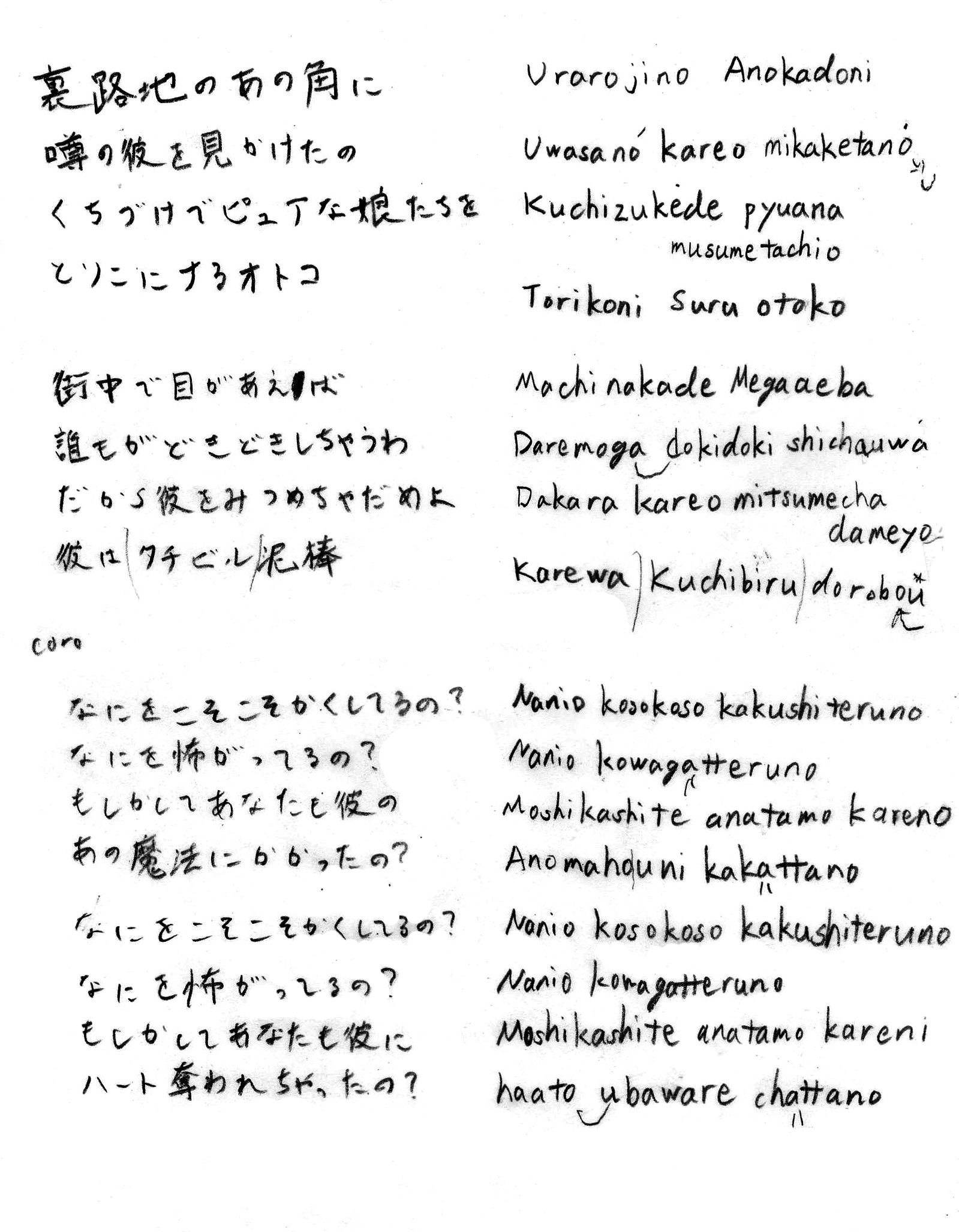By 1982 we were joining as a group, as "Los Cañoneros". At the very beginning we only played the most famous cañonero songs, Venezuelan merengue, joropo, Venezuelan waltz and, of course, the Caracas Pasodoble of which I wrote in a recent post.

Los Cañoneros (Augusto, Andrés, Hely, Ylich and Arnaldo) by 1982. Source
When I assembled the group it was made to be part of a theatrical play, and since the piece took place in 1926, I chose a repertoire according to the time.
Among the list was an old merengue called "El Kaiser" (The Kaiser), a jocular song about the German emperor Willhelm II, with very funny lyrics where humor and war converge in a dance tune (Listen to this song performed by Serenata Guayanesa).
Arnaldo, the drummer of the group, had a very particular way to pronounce some words, and he always changed the "a" in Kaiser, to an "e" saying it more like keeser. One day we were having a good time, talking and joking, and suddenly someone invented that he was speaking English and he was talking us about a "kisser". This word translated into Spanish is "Besador", and this word said without the "d" (besaor) sounds the way Andalusians speak (where the Pasodoble comes from).
So, I decided to write a Caracas Pasodoble called "El Besaor".
Because of the fact that we were playing a kind of music from the beginning of the XX century, I wrote the lyrics as if they had been written circa 1920 and I told there about a dandy, very famous because he achieved to kiss all the ladies he wanted...
Por la esquina de Peligro
vive un hombre que llaman besaor
porque sabe robarle a las mujeres
con un beso todo su candor
Cuando pasa por la plaza
las muchachas se sonrojan de rubor
y voltean disimuladamente
para no mirar de frente al besaor
- Pero qué ocultas muchacha sinvergüenza
dime que ocultas por qué tanto temor
es que acaso tú también te has entregado
a los brazos de ese besaorSegún cuentan sus amigos
ha besado a la esposa 'e don Lorenzo
a Ritica y a Mayra Josefina
y a la misma profesora del colegio
Ha besado a la hija 'e don Humberto
a la novia del sute Pedro Elías
a Mercedes y a Carmen Teresa
y según los comentarios a una tía
- Pero qué ocultas...
Se comentan los vecinos
de un casorio que hubo en la parroquia
y después de haber salido de la iglesia
el fulano besaor raptó a la novia
A la doce de la noche
regresó sonriendo la recién casada
y el marido al verla tan contenta
dando gritos a la novia preguntaba
- Pero qué ocultas...
Around the corner of Danger
lives a man they call "besaor"
because he knows how to steal from women
all her candor with a kiss
When he goes through the square
the girls blush
and they surreptitiously turn
so as not to face the "besaor"
- But what do you hide, scoundrel girl
tell me what you hide with so much fear
is that perhaps you have also given yourself
to the arms of that "besaor"According to his friends
He has kissed Don Lorenzo's wife
The little Rita and Mayra Josefina
and even the school teacher
He has kissed Don Humberto's daughter
the girlfriend of the young Pedro Elías
Mercedes and Carmen Teresa
and according to the comments also an aunt
- But what do you hide, scoundrel girl...
The neighbors are commenting
about a wedding in the parish
where, after leaving the church
the "besaor" kidnapped the bride
At twelve o'clock at night
came back the newly married, smiling
and her husband seeing her so happy
shouting at the girlfriend asked
- But what do you hide, scoundrel girl...
We recorded a couple of songs, including this one, we started radial promotion with this song as a single and after a short time one of the most important record labels in Venezuela by that time, Palacio de la Música, signed us.
With our producer, Nucho Bellomo, we made the selection of the tracks to be included in this L.P., where eight of them were covers of very old songs, and the other two were written by me: Merengueadera and the main subject of this post...
The name chosen by the whole production team and the label for our first album was: El Besaor
One of our first appearances on TV (1983)
This pasodoble became one of the most emblematic songs by Los Cañoneros, but it went farther and was played by other groups and singers. Not only in Venezuela. In Japan Estudiantina Komaba a cultural group that plays Venezuelan music, performed it and made even a Japanese version of the lyrics.

Estudiantina Komaba
And that was how a joke happened to be a song that travels the world!





